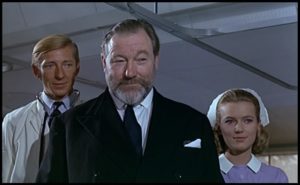The Doctor-Knows-Best NHS Foundation Trust: a Business Proposal for the Health Secretary
Informed consent, in practice, is a bad joke. It’s a notion created by lawyers, and like many such notions it bears little relationship to the concerns that real humans have when they’re left to themselves, but it creates many artificial, lucrative, and expensive concerns.
Of course there are a few clinical situations where it is important that the patient reflects deeply and independently on the risks and benefits of the possible options, and there are a few people (I hope never to meet them: they would be icily un-Falstaffian) whose sole ethical lodestone is their own neatly and indelibly drafted life-plan. But those situations and those people are fortunately rare.Read More »The Doctor-Knows-Best NHS Foundation Trust: a Business Proposal for the Health Secretary





